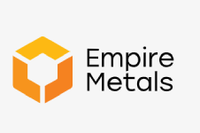While most traders and investment banking firms have repeatedly shrugged off weaknesses in the copper market as purely sentiment, without fundamental support, Societe Generale has bucked the trend and as in now saying that they are not very optimistic about near-term copper prices.
By Leia Toovey- Exclusive to Copper Investing News
Copper prices rebounded Thursday, as the ongoing strike at BHP Billiton’s (NYSE:BHP) Escondida mine turned the market’s focus away from the negative global economic outlook, and towards the impact supply threats could have on an already tight market. Barclays Capital (NYSE:BCS) forecasts copper production will lag demand by 670,000 tonnes this year. The International Copper Study Group has a more modest demand short-fall projection of 377,000 tonnes.The strike at Escondida, which was in its 14th day on Thursday, continues to cost BHP Billiton a loss of 2,500 tonnes per day of copper-in-concentrate production. The union at BHP Billiton Ltd.’s Escondida mine in Chile plans to present members today with a company pay offer.
Meanwhile, Codelco sees some risk of strike action spreading in Chile, and workers at Freeport McMoran Copper & Gold’s (NYSE:FCX) Grasberg mine may strike again if their demands of a 20-fold pay rise are not met.
In addition to the supply threats, LME copper was boosted by short-covering after the metal plummeted to a three-week low Wednesday. On Wednesday, copper prices followed equity markets lower as trader sentiment towards the US economy continued to sour despite the last minute agreement to raise the debt ceiling. As a sign of the uneasiness over the state of the US economy, earlier in Thursday trading, the two-year yield on the US Treasury note fell as low as 0.265 percent, an all-time low. Bond yields fall when demand for them increases; when demand increases traders are willing to accept smaller returns in exchange for stability. Investors were also uneasy over the stability of the Eurozone’s economy. Italian and Spanish government bond prices have slumped this week due to fears that Europe’s sovereign debt problems are spreading to economies that are too large to be rescued by the existing Eurozone bailout fund.
Most traders and investment banking firms have repeatedly shrugged off weaknesses in the copper market as purely sentiment, and without fundamental support, Societe Generale has bucked the trend and is now saying that they are not very optimistic about near-term copper prices. The firm predicts prices may fall “well below” $9,000 a metric tonne over concerns that the global economy is slowing down. “It doesn’t seem impossible for copper to reach $8,000 if macroeconomic data remain weak,” London-based analyst Jesper Dannesboe said in an emailed report. Dannesboe went further to say “We feel increasingly confident that copper is mispriced and exposed to a major selloff.” Danenesboe told Bloomberg,“The market is in the process of discounting a higher probability of a significant slowdown in the world economy” and has “yet to take into account this, by copper standards, major supply increase.”
Company news
The world’s largest copper producer, Codelco, is planning to raise up to $2.5 billion in bonds and loans by the end of 2012 to fund record spending on its mines in Chile, according to Chief Executive Officer Diego Hernandez. “Next year we will go to financial markets and if conditions are good this year we will advance that plan,” Hernandez said. The company was looking to borrow “$2 billion to $2.5 billion” to finance about $4 billion in total investment next year, he said. Codelco plans to spend at least $20 billion over the next decade to boost production at its aging mines.
In their recent first-half earnings release, Xstrata Plc. (LON:XTA), announced first-half profit climbed 27 percent, due to climbing commodity prices. Net income rose to $2.92 billion, compared to $2.29 billion in the same period last year. Sales were up 23 percent to $16.8 billion. “Average prices for all of Xstrata’s commodities rose above the first half of 2010,” Chief Executive Officer Mick Davis said in a statement. Xstrata benefited most from higher prices for its two main commodities, copper and coal. The average price of power-station coal at Australia’s Newcastle port, a benchmark for Asia, rose to $124 a tonne compared to $97 a year earlier. Copper prices jumped 30 percent to $9,401 a tonne. In their earnings statement, Xstrata mentioned that capital costs for its Koniambo nickel project jumped 30 percent to $5 billion, from the $3.85 billion it approved in 2007, primarily due to productivity and contractor under performance. Xstrata is seeking to increase overall output by 50 percent through 2014 to capitalize on growing Asian demand for coal and metals.
Disclosure: I, Leia Toovey, have equity interests in BHP Billiton and Freeport McMoRan Copper and Gold Inc.





